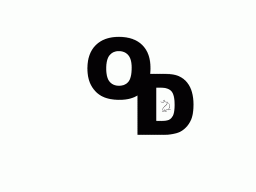
Generally, when you go to a meeting or someone introduces you to other people, the person who introduces you says: «he is» or in the meeting to meet you they ask: what are you?
Almost all of us know that what they are asking or saying about one is what he does, what trade he has or exercises, or what title he has.
In this sense, one is what he does. And so far so good, because man is a being that he does; This was expressed in an extraordinary way by Julián Marías.
This is true. One is what he does, because one is a doing.
Sometimes you have a title that you do not hold, this is very normal, but they still present you with that title, because it identifies you.
Even if you are at a party and they ask you who are you? One tends to reply that he is the friend of such a person, the one who invited him. In this case, one is defined by a reference, and the other person is very satisfied with that answer. It may be that they look at it badly, but that’s it.
Because if one gets like that asshole Moses, that in the middle of that desert and that heat, he began to ask the Most High;
-Who are you?
And this one, to get rid of him, told him bluntly:
-«I am who I am».
Moses had no choice but to stick his tongue up his ass and swallowed Jehovah’s response. Because the carnal knew that the highest could split it in two with a lightning bolt. The best thing was to stay with Cayetano Veloso.
That is why Moses did not say to Jehovah:
«Are you kidding me, my panela?»
Jehovah, who is a simple being, he did not have to respond in another way. Because as the logicians of philosophy say, he answered with a tautology: A = A.
But one, which is a miserable mortadella full of equalities, differences, contradictions and many other pods. He can’t answer that way.
Let’s say that one arrives at a party, and someone involved asks one:
-Who are you?
If one gets fancy he might respond like Jehovah:
-«I am who I am».
Of course, with this answer they could give him a hell of a beating.
Let’s say that one wants to expand on the answer and argues:
—I am who I am, but at the same time I am other things, in addition to what I am.
One may do this because he has been possessed by the Hegelian spirit.
And one continues:
«It’s me and others at the same time. I am a unity and a diversity.
Most likely, the person who asked thinks that one is drugged, at least. Or that one has a serious psychiatric problem.
Because those are not acceptable answers.
However, one is saying in formal language: that he is A and not A. And in turn he is saying that he is B with the whole alphabet mixed up. But that is also the negation of all that.
That he likes, at the same time, The Queen and Pedro Infante, Mon Laferte and Vivaldi, Hector Lavoe and Pavarotti; without anything excluding anything. Because, in truth, one is a hodgepodge without rhyme or reason.
Nevertheless,
Since one is a mere mortal, it is better to give a mere mortal answer. And the best thing is to say that it is what he does, or that he is a friend of that one over there. Don’t go deep.
It is best to give a conventional answer. Although it does not say anything about what one is. One could say that he is a plumber and everyone is satisfied, omitting that he is a sociopath, for example.
Nor, no one is asking one to start saying what he is. Nor is anyone interested in that. It is a question for pure formality, to know where to locate it.
If someone is seen on the street with a tricolor backpack, no one is going to ask who he is, or what he is or what he does. Already the tricolor backpack identifies one as a shit-eater. Say it there.
You don’t have to say anything, to show a button.
What people are looking for is to put a label on you, that’s all. You shouldn’t give yourself a bad life or mortify yourself by giving explanations, because nobody, I repeat, is interested in that. Everyone is in their mambo with gut.
The question is trivial. Because then there wouldn’t be so many mistakes, neither in marriage, nor in courtship, nor at work. What they want is to know what we know how to do or, simply, what we do. Whether we do it right or wrong is another matter.
We must be restrained, like Lorca’s gypsy in «The Unfaithful Married Woman.»
Once talking with the poet Javier Abreu, a person told him:
—Javier, you’re the same, you haven’t changed, instead so-and-so changed.
To which the poet replied:
—No, the one who has changed is me, that’s why you look the same. Fulanito is the same, that’s why the time he has changed.
A beautiful answer. To indicate that contradiction that we are, which manifests itself in a daily dynamic.
But let’s not get too Hegelian, if you ask us. It is best to go conventional. It is not going to be that they do not speak to us again or invite us to any other party.
